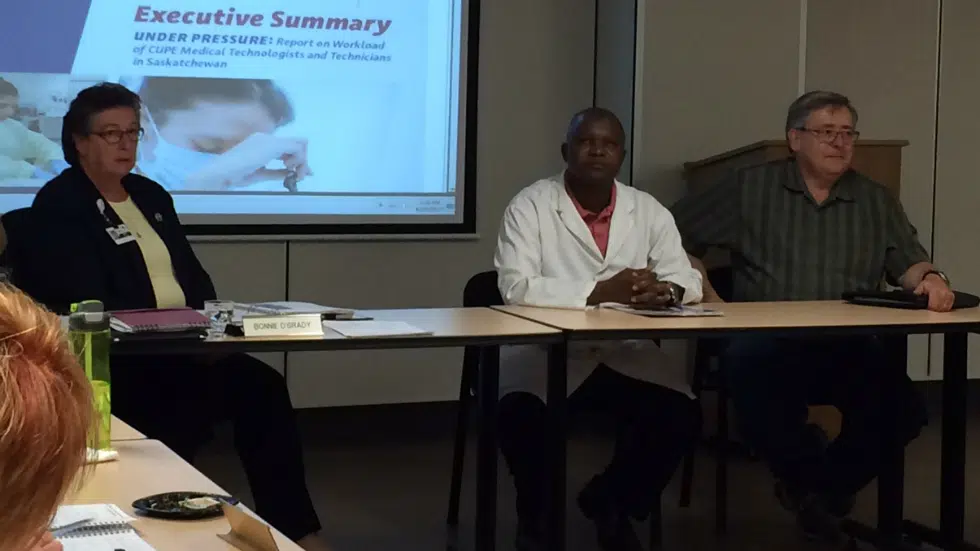
Health region officer, union look at staff and workload issues for tech employees
A local CUPE official is asking for more support for technology specialists to help relieve worker stress.
Canadian Union of Public Employees (CUPE) local 5111 president Brian Manegre gave a presentation to Prairie North Health Region’s board Wednesday about the current challenges for technology specialists area healthcare regions are facing.
He presented the report – called Under Pressure: Report on the Workload of CUPE Medical Technologists and Technicians in Saskatchewan – to Prairie North at a Battlefords Union Hospital meeting. The report, containing data from CUPE technologists and technicians, outlined issues with replacement staff to assist with relief work.
Concern in many health regions


